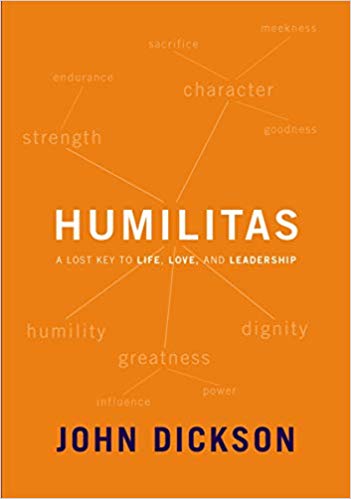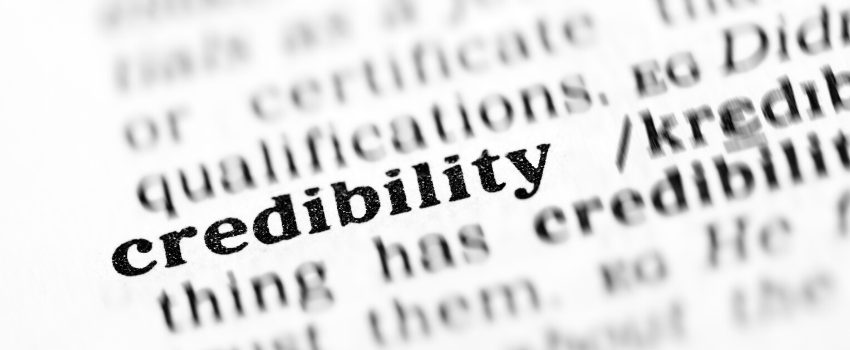The question of what makes some people more credible than others has been on my mind for a long time. And whether I approach the topic from the standpoint of someone wanting to establish my own credibility or wanting to determine who I myself should trust, the answer should be the same.
A central part of trust is consistency. And by consistency, I mean that what a person says matches closely what they also do. A credible person does not say things like “Do as I say, not as I do.” On the contrary, they are more likely to show you what to do by their own conduct, and then fill in the gaps of what you can observe of their lifestyle with explanations. But with credible people, the explanations are as plausible as can be.
This is why they did this, then that, and then another thing. And the purpose makes sense and connects the various dots with little effort. It is not hard to believe credible people. And this is no small part of credibility’s benefit. It’s just easier.
But then the person easiest to trust is not always the most trustworthy. Some people are particularly skilled at deception and rhetorical sleight of hand. And in their wake, we must consider whether we ourselves trust as well and easily as we ought.
Consider abused dogs. A previous owner beat and mistreated them. You don’t want to do that. You want to pat them on the head, scratch them behind the ear, and perhaps feed them a treat. But when they recoil yelping as you advance, or else bare their teeth and snarl at your attempts to be kind – we recognize readily that there is more to credibility than just not doing any harm ourselves.
For Weird Sake
Sometimes the best thing to do with a dog that’s been abused is to leave it alone. To do otherwise can result in the hand that feeds being bitten. No matter how much we might want to rehabilitate a mistreated and distrustful animal, most of us are rightfully more concerned with self-preservation past a certain measure of risk.
But is it the same with people? If human beings are just another kind of animal, then certainly. If mankind is just another branch on the tree of life, people are certainly the most dangerous kind of animal.
Yet as a Christian, I cannot entertain this line of thought past a certain point. And that point is where, early in Genesis, God tells us he created man in his image. As I move further into the book, I see also God loving the world of sinners so much that he sent his only begotten Son to reconcile us to himself.
If there was ever someone who could talk about what it’s like to have their feeding hand bitten, that person is God. And what does he call us to? Loving our enemies, doing good to and praying for those who persecute and spitefully use us – this is Christ’s command.
This is weird and counter-intuitive; and it seems to work against our desire for self-preservation except for one critical detail. God commanded it. And trusting and obeying God is the only way to ensure our ultimate self-preservation.
And sometimes, oddly enough, for us to not repay evil for evil actually causes the beaten dog or hurting person to second-guess their initial impression of us. Not always, but sometimes the creature we’re trying to help was just afraid of being hurt again.
Arrogance and Insecurity
I was talking with my wife on the way to meet some friends of ours from Montana for dinner this week. Somehow the topic of perceived arrogance and insecurity came up.
Some have thought me arrogant. Am I, though? Perhaps only God knows for certain, but I believe I have some idea and am not completely self-deluded.
In discussing and considering the question, my wife and I wondered aloud to one another how often deeply insecure people come across as arrogant because they’re afraid of being dismissed or preyed upon for appearing vulnerable.
For a quick test, I ran through the list of people I’ve known who seemed arrogant, puffed up, and conceited. Were they really that way when I got to know them better, or were they just afraid?
Again, only the good Lord knows for certain. But it seems plausible to me that people puff themselves up to appear larger than they really are because they feel like who they really are is insufficient.
Yet it could also be that what starts as arrogance results in insecurity as we put too much confidence in qualities and conditions, the importance of which we have overestimated. And when situations and relationships go awry because of our misplaced confidence, we find ourselves feeling forlorn and frustrated. And in the wake of this, we become insecure if we do not correctly diagnose what the problem was in the first place.
In other words, we lose confidence in our ability to appraise ourselves and the people and world around us, whether it be full of threats or opportunities. And another way of saying this is that credibility is diminished.
And this makes sense. How many of the people you find most credible would you describe as arrogant or insecure?
Humility and Confidence
Re-framing the question, how many of the people I find most credible would I characterize as both humble and confident? I’m willing to go out on a limb and answer “All of them.”
The conundrum is that humility and confidence often seem at first blush to be at odds with one another. Yet they are not at all at odds unless we misunderstand either or both concepts.
For too many of us, we assume humility requires not thinking of ourselves at all, or else thinking lowly of ourselves when we do.
Conversely, we see confidence without context. I would wager this is a consequence of the American obsession in recent decades with promoting “self-esteem” absent accomplishment or objective standards of virtue.
Yet that kind of confidence is a recipe for arrogance and insecurity. And it makes no allowances for admitting our mistakes or correcting them, nor for self-improvement. And whatever we tell ourselves and one another, we know instinctively that we make many mistakes, and that we need self-improvement. But denial of the cognitive and social preconditions for discussing and dealing with these, we are stuck and soon despair in our moral and spiritual stagnation.
Or I should say, many of us are stuck. Some people find subtler ways to at least admit their mistakes to themselves and their closest confidants. And then they work on correcting and improving themselves in an objective fashion. This in turn produces genuine, 100% organic confidence with no additives, artificial flavors, or preservatives.

As an aside, John Dickson’s book, Humilitas: A Lost Key to Life, Love, and Leadership, is a great resource for reading more on this. Without giving away too much, we rightly find most credible those people who personify best the combination of both confidence and humility.
Repentance and Grace
But confidence on a personal level means you believe you are able to communicate and do what you need to do because you are who you need to be.
Humility, on the other hand, is a prerequisite to admitting you still have things to learn. You have limitations. You can’t do everything, be everywhere, please everyone. And you will make mistakes and get it wrong sometimes. But humility means being able to own that without it preventing you from carrying on or starting in the first place.
No man except Jesus has ever been both perfectly humble and confident. And this side of heaven, it’s not fair to expect complete purity and perfection from anyone else, including ourselves and those we look to for leadership.
That said, it is entirely reasonable and healthy to expect and require – of ourselves and others – honesty and integrity. And it’s equally reasonable for us to require of leaders a repentant and contrite heart where they err, just as we plead for grace in our imperfections. And we do not hope for grace from God alone, but from man as well. If God is able to be gracious to repentant sinners who have sinned most against him, it is not too much for us to forgive as we have been forgiven.
But here I think it’s also critical for us to reserve judgment instead of making snap assessments. It’s one thing to have high standards. It’s quite another to be oversensitive in a self-aggrandizing way.
And on that point, it’s critical that we hold ourselves to no less a high standard than we hold others to. This contributes to our own credibility – with ourselves, taking the form of self-confidence, and also with others, taking the form of reputation.
Emergency Shutdown Delay Timers
In my line of work – my day job, if you will – I work with programming and devices that handle emergency shutdowns for process equipment in the oil and gas industry.
Metal vessels containing pressurized oil and gas and water are constructed with certain limitations. You can only put so much liquid into them. You can only apply so much pressure before risking rupture. Only so much heat or cold will further rather than disrupt your purposes.
To safeguard people, equipment, and the environment, and to maximize efficiency, devices are installed to monitor variables like liquid level, pressure, and temperature. And these are hooked up to computers onsite that are programmed to open or close valves and turn off pumps and compressors in the event that a variable exceeds or fails to reach the set-points.
But in almost 8-years now of working in this industry, I have yet to see alarms and shutdowns programmed without delay timers. Sometimes the delay is 5-seconds, other times 10, still others 30. The longest I’ve seen is 2-minutes.
The reason for this is that sensors can misread from time to time. And you don’t want to shut down a well-site or process plant because a sensor glitched for just an instant.
This principle should be applied to how we evaluate ourselves and other people as well. Yet too often, in our day and age of instant digital communication and gratification, we fail to put delay timers in our interactions.
The late-breaking sensational story telling us to believe the worst about ourselves or someone else should be taken with a grain of salt. And we should restrain our fight or flight reaction while we weigh and measure the evidence in pursuit of actual truth and justice, never settling for mere virtue signaling.
